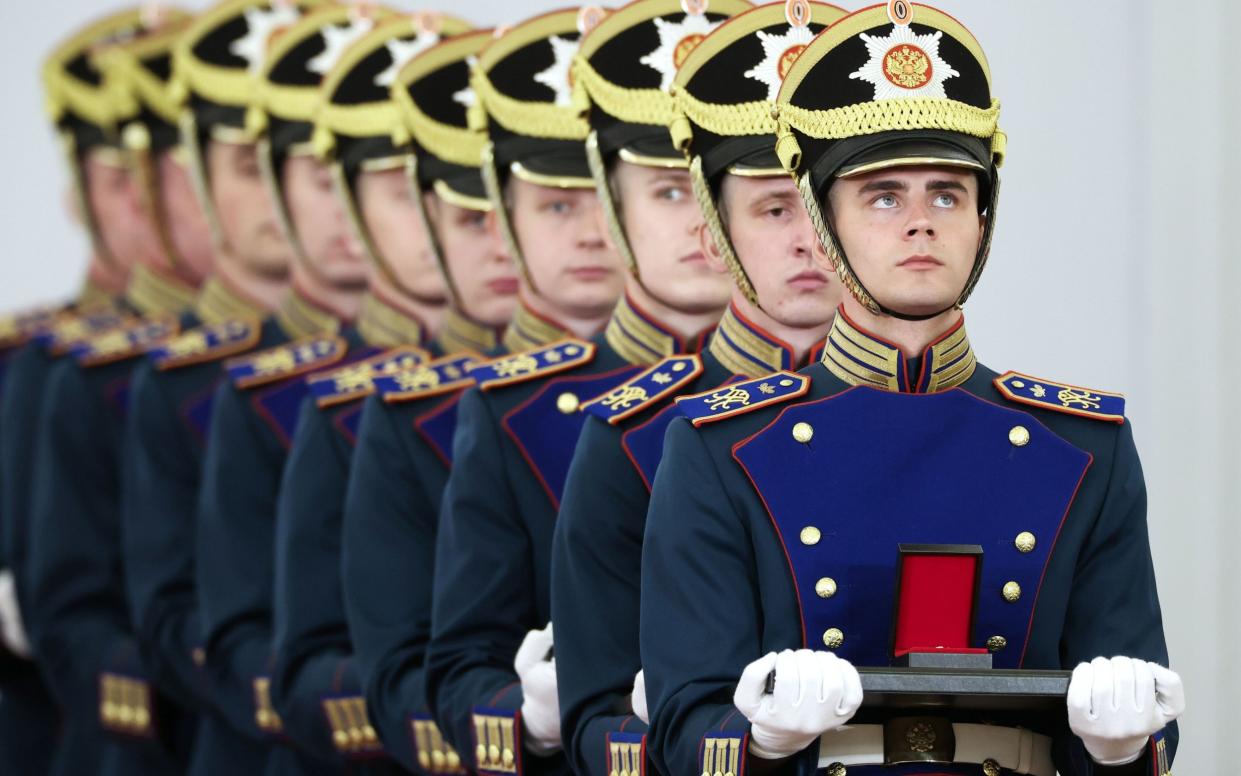Kremlin forced to pay £340,000 for Germans to spy on their country

Russia is having to pay Germans €400,000 (£340,000) to spy for the Kremlin after the mass expulsion of diplomats hobbled its espionage operations, Germany’s domestic intelligence agency has said.
As well as financial incentives, Moscow was increasingly resorting to blackmail after around 600 Russian diplomats were expelled following the invasion of Ukraine, the Office for Constitutional Protection (BfV), the German equivalent of MI5, said in its annual report.
“Russia is working hard to compensate for the German government’s reduction in the number of Russian agents in Germany,” BfV chief Thomas Haldenwang told a news conference.
Two German citizens who were charged last August with spying for Russia had been paid an estimated €400,000 each for their services, the BfV said.
“The agent fees show that Russia’s services continue to have enormous financial resources with which to pursue their intelligence goals,” it added.
Particularly at risk of being targeted by Russian security services were Germans who lived in Russia or regularly travelled there, including German diplomats, who could easily be made vulnerable to blackmail attempts.
“As soon as they have compromising information about their targets, these services are not shy about employing aggressive recruitment techniques,” they added.
Earlier this month, Nato reaffirmed its concerns about Russian espionage and called for tougher action in response to what it said was a campaign of hostile activities, including sabotage and cyber attacks.
Russia has proved adaptable in finding ways of influencing events in Germany even after its media channels were banned and 600 of its diplomats stationed around Europe were expelled, the BfV said.
Some of those influencing efforts have shifted to the social media platform Telegram, which is difficult to police, while spies are now being attached to international organisations.
Russian officers tasked with handling informants are now travelling to do so rather than being based in Germany.
As well as Russia, the annual report considers other threats facing Germany and Europe.
The number of Right-wing and Left-wing extremists rose once more last year by 4.6 per cent and 1.4 per cent respectively to 40,600 and 37,000, according to the report.
Far-Right influence
Hard-right groups are also a receptive audience for Russian influence operations. These include the Reichsbuerger (Citizens of the Reich) conspiracy theorists, some of whom are now on trial for plotting a coup against Germany for which they had sought Russian support.
The German security services have also warned of possible terrorist attacks on Euro 2024, the major football underway across the country.
The service published a special chapter on the war in Gaza in their report for the first time, warning that Left-wing, Right-wing and Islamist extremists had united in hate against Israel.
Mr Haldenwang referred to anti-Semitism as “a bridging narrative for very different areas of extremism”, and that the Middle East conflict was acting as an “accelerant for anti-Semitism in Germany”.
Germany has been one of Israel’s staunchest supporters since war broke out with Hamas on Oct 7.
However, Germany has a large Arab and Muslim population, with Berlin home to the largest Palestinian diaspora outside of the Middle East.
The situation has made the capital tense – both anti-Semitic and Islamophobic attacks have risen rapidly since Oct 7.
Germany’s domestic intelligence service reported a new record of almost 40,000 crimes motivated by political or religious extremism in 2023.


